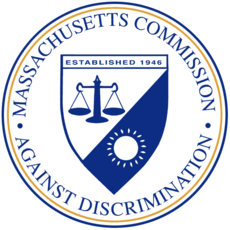Law and Legal Research
- About This Guide
- Navigating the Court System Toggle Dropdown
- Legal Resources by Topic
- Research Services Department at BPL
BPL Resources
-
Every Tenant's Legal Guide
Publication Date: 2024Renters have many legal rights-- learn yours and how to protect them! The only book of its kind, Every Tenant's Legal Guide gives you the legal and practical information you need (plus dozens of sample letters and forms) to find a great rental and landlord. -
Leases and Rental Agreements
Publication Date: 2023If you rent out residential real estate, you need to create documents that are legally valid where your rental property is located. Every state has its own rules when it comes to what landlords must include in their leases, and generic forms don't tell you what you need to know. Not only does this book contain instructions on how to tailor your rental documents to your state's laws, it also gives you customizable versions of key rental forms you need. -
Every Landlord's Legal Guide
Publication Date: 2024Use this top-selling book to: screen and choose tenants, prepare leases and rental agreements, hire a property manager, keep up with repairs and maintenance, make security deposit deductions, respond to broken leases, learn how to terminate a tenancy for nonpayment of rent or other lease violations, restrict tenants from renting their place on Airbnb, deal with bed bugs, mold, and lead hazards, and more!
-
Condominium Law in Massachusetts
 This page is the actual law of Massachusetts published by the Commonwealth. It is not an interpretation and does not provide further explanation.
This page is the actual law of Massachusetts published by the Commonwealth. It is not an interpretation and does not provide further explanation.
Related Research Guides
Types of Housing Law
For our purposes, the phrase "housing law" is an umbrella term referring to two categories: Fair Housing Law and Landlord and Tenant Rights.
Fair Housing Law
The Fair Housing Act, 42 U.S.C. 3601, is federal law. All jurisdictions must abide by this law. "The Fair Housing Act prohibits discrimination by direct providers of housing, such as landlords and real estate companies as well as other entities, such as municipalities, banks or other lending institutions and homeowners insurance companies whose discriminatory practices make housing unavailable to persons because of: race or color, religion, sex, national origin, familial status, or disability." (DOJ)
Fair Housing Law in Massachusetts
As all jurisdictions must abide by the Fair Housing Act, so must Massachusetts. The Commonwealth varies from the federal law by adding seven more areas in-which discriminatory behavior is barred:
"State and federal law prohibit discrimination in the sale and rental of housing by property owners, landlords, property managers, mortgage lenders, and real estate agents. In Massachusetts, it is unlawful for a housing provider to discriminate against a current or prospective tenant based on: Race, Color, National Origin, Religion, Sex, Familial Status (i.e. children), Disability, Source of Income (e.g. a Section 8 voucher), Sexual Orientation, Gender Identity, Age, Marital Status, Veteran or Active Military Status, Genetic Information."
The Massachusetts Attorney General's Civil Rights Division provides examples of violations, a link to file a complaint, additional resources to learn more, and contact information for the Civil Rights Division. Provided also is a Guide to Criminal Records in Employment and Housing.
Massachusetts Landlord and Tenant Rights
The Attorney General's Guide to Landlord and Tenant Rights has a site dedicated to rights and responsibilities when creating or signing onto a lease, as well as laws, regulations, and issues related to renting and leasing an apartment. Additionally, Massachusetts has an Executive Office of Housing and Livable Communities (EOHLC). It creates more homes and lower housing costs for Massachusetts residents, distributes funding to municipalities, oversees the state-aided public housing portfolio, and operates the state's Emergency Family Shelter (EA) program. They have a list of the most common types of tenant rights.
See also the site on Massachusetts law about housing and real estate from the Trial Court Law Library.
Legal Tactics: Tenants' Rights in Massachusetts, 9th ed
Mass Legal Help hosts this eBook on their website in a series of downloadable PDFs. Legal Tactics provides practical information about tenants' rights in private housing—housing that is owned by an individual or a privately-owned company. Checklists, forms, and booklets (how to represent yourself in an eviction, for example) are also available to download.
Are you facing eviction?
Massachusetts Defense for Eviction (MADE): Self-Guided Eviction Help
This free guided interview is for Massachusetts tenants who are being evicted. It is estimated to take between 25 and 90 minutes for a typical tenant to use on their own. It will help you make sure that you respond to your landlord's eviction case correctly. It can send you reminders of important dates by text and email. It includes videos and educational links. For more information, visit the Greater Boston Legal Services webpage. Listen to more information about the program from WBUR.
Help for Tenants Facing Eviction in Boston
If you’ve been threatened with eviction or already received an eviction notice, the City of Boston provides resources to help.
See also their page What to Do When Facing an Eviction in Boston. On this page, you'll find frequently asked questions about the eviction process in 11 languages.
Local Resources
-
Massachusetts housing assistance: Emergency and long-term help
 This guide from Mass.gov covers how to get help with housing in Massachusetts. Learn about shelter, eviction support, emergency help for housing costs, rental vouchers, public housing, and affordable apartments & homes.Executive Office of Housing and Livable Communities contact information
This guide from Mass.gov covers how to get help with housing in Massachusetts. Learn about shelter, eviction support, emergency help for housing costs, rental vouchers, public housing, and affordable apartments & homes.Executive Office of Housing and Livable Communities contact information
Phone: (617) 573-1100
Email: Housing.Help@mass.gov -

Mass Fair HousingMFHC provides free legal services to those who have experienced housing discrimination, in Berkshire, Franklin, Hampshire, Hampden, and Worcester counties.Address: 57 Suffolk Street, Holyoke, MA 01040
Phone: (413) 539-9796 or (1-800) 675-7309 -

Massachusetts Commission Against DiscriminationMCAD is the independent state agency that enforces the Massachusetts anti-discrimination laws by investigating complaints of discrimination in employment, housing, public accommodations, and other aspects of everyday life. Pursuant to its mission to eradicate discrimination in the Commonwealth, the MCAD also offers remedial and preventative training, and publishes resources online such as model policies, posters, and guides.Email: mcad@mass.gov
Boston Contact Info: 1 Ashburton Place, Suite 601, Boston, MA 02108
(617) 994-6000
Springfield Contact Info: 436 Dwight Street, Room 220, Springfield, MA 01103
(413) 739-2145
Worcester Contact Info: 18 Chestnut Street, Room 520, Worcester, MA 01608
(508) 453-9630
-
Preventing & Addressing Housing DiscriminationTwo-page information sheet briefly explaining protected classes and common forms of discrimination
-

Boston's Office of Housing StabilityOHS has information on emergency resources for tenants. Additionally, they host a virtual legal clinic for small landlords and tenants each week.Phone: 617-635-4200
Address: 2 Center Plaza, Boston, MA 02108 -

Guide to Criminal Records in Employment and HousingThis guide is provided by the Massachusetts Attorney General’s Civil Rights Division because, "People in Massachusetts with criminal records often face unique challenges when re-entering society, including barriers to securing employment and housing."Address: 11th floor of 100 Cambridge Street, Boston, 02114
Phone: Consumer Hotline 617-727-8400 -

Housing Families - Legal ServicesIn order to prevent homelessness before it happens, Housing Families provides free legal advice to help clients stay in their homes, including free legal services like mediation, representation in court, referrals, and legal advice, all in the effort to achieve greater housing equity and well-being.Chelsea Legal Services
99 Fourth Street, Suite 203
Chelsea, MA 02150
(781) 214-6533
Malden Legal Services
919 Eastern Ave
Malden, MA 02148
(781) 397-7000 x5721
Massachusetts Residents
919 Eastern Ave
Malden, MA 02148
(781) 322-9119 -
U.S. Department of Housing and Urban DevelopmentTenant Rights, Laws and Protections for Massachusetts. Resources include: Know your responsibilities as a tenant, Massachusetts Commission Against Discrimination, Disability Law Center of Massachusetts, Boston Fair Housing Commission, and more. Need Help? HUD handles complaints about housing discrimination, bad landlords in federal housing and many other issues. -
Massachusetts Legal Research FinderUse Guide Me to find help with your housing problem. Answer a few questions and they will give you information to help you understand what your legal rights and responsibilities are. They will also give you a you a list of steps you can take that give you more control over what happens next.
- Last Updated: Dec 11, 2025 1:00 PM
- URL: https://guides.bpl.org/lawandlegal
- Print Page